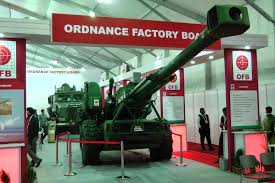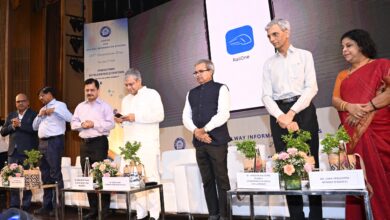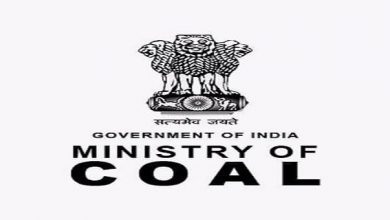AIDEF Contemplates Legal Action against Lt. General (Retd.).P.R.Shankar for his “Malicious” article against Ordinance Factories

A debate is going on in the social media about the legality and illegality of the proposed indefinite strike planned by the Trade Unions of the Defence Civilian Employees of Ordnance Factories against Corporatisation. The Federations have given their reply to the Ministry of Defence justifying that their strike is legal. Now what the Govt. is going to do on the counter given by the Federations, we have to wait and watch.
www.indianpsu.com had an interaction with C.Srikumar, General Secretary of All India Defence Employees Federation, who is one of the signatory for the Strike notice. His version about the legality of their strike is given here for further debate on the matter.
Democracy is something that gives the weak the same chance as the strong. This was told by none other than Mahatma Gandhi, the Father of the Nation. When the Industrial Dispute Act 1947 was enacted in our country the Right to Strike was made a part of the Act, thereby recognising the right to Strike as an Industrial Action of the workers. The Working class has indisputably earned the right after a long struggle.
The Media internationally is also watching, how MOD has roped in MOD funded MP-IDSA to launch such public malicious campaign. The most unfortunate degradation of the Government working in damaging its image in then international community and in value destruction of OFB is in progress. The propaganda has been projecting one side of the story without taking feedback of people at the working level, be it workers in OFB or be it soldiers. A high level of master-minded corruption of plum posting in the Private industry by weakening of OFB for the top level bureaucrats cannot be ruled out, a matter of serious concern for the nation. In light of the above, despite several appeal, MOD is bent upon carrying out such ill-conceived corporatisation with Malafide. Thus, the workers have been left without any alternatives other than to strike.
It can be well inferred that the GOI, although signatory to the ILO convention, its action by various means has not been supporting of effective recognition of the right to collective bargaining in true spirit, limiting the discussion in the debate of corporatisation to limited point of reference for the workmen.
In B.R. Singh v. Union of India (v), Justice Ahmadi opined that “The Trade Unions with sufficient membership strength are able to bargain more effectively with the management than individual workmen. The bargaining strength would be considerably reduced if it is not permitted to demonstrate by adopting agitational methods such as ‘work to rule’, ‘go-slow’, ‘absenteeism’, ‘sit-down strike’, and ‘strike’. This has been recognized by almost all democratic countries”.
In Gujarat Steel Tubes v. Its Mazdoor Sabha (vi), Justice Bhagwati opined that right to strike is integral of collective bargaining. He further stated that this right is a process recognized by industrial jurisprudence and supported by social justice. Gujarat Steel Tubes is a three-judge bench decision and cannot be overruled by the division bench decision of Rangarajan. In the Rangarajan case the court had no authority to wash out completely the legal right evolved by judicial legislation.
The scheme of the Industrial Disputes Act, 1947 implies a right to strike (vii) in industries. A wide interpretation of the term ‘industry’ (viii) by the courts includes hospitals, educational institutions, clubs and government departments. Section 2 (q) of the Act defines ‘strike’. Sections 22, 23, and 24 all recognize the right to strike. Although , Section 24 differentiates between a ‘legal strike’ and an ‘illegal strike’. Justice Krishna Iyer had opined that “a strike could be legal or illegal and even an illegal strike could be a justified one” (ix). It is thus beyond doubt that the Industrial Disputes Act, 1947 contemplates a right to strike.
ILO Convention 154 is the Collective Bargaining Convention, 1981. The Preamble to this Convention reaffirms the provision of the Declaration of Philadelphia recognising “the solemn obligation of the International Labour Organisation to further among the nations of the world programmes which will achieve … the effective recognition of the right of collective bargaining”. Further the Convention is not restricted to labour trade unions. Article 1 of the Convention states “Convention shall apply to all branches of economic activity”.
Public employees are also not exempted from the above. Convention 151 is the Labour Relations (Public Service) Convention, 1978. Article 9 of the Convention provides: “Public employees shall have, as other workers, the civil and political rights which are essential for the normal exercise of freedom of association, subject only to the obligations arising from their status and the nature of their functions”.
Of the Directive Principles of State Policy enshrined in Part IV of the Constitution, Article 51(c) provides that the State shall endeavour to foster respect for international law and treaty obligations in the dealings of organized people with one another. By virtue of being a member of the ILO, India is under obligation to satisfy at least the fundamental rights promoted by the Conventions, irrespective of it having ratified them or not.
This will be appropriate to link to the Classic Dandi March of Gandhi, which changed the history of India. MOD can make arguments in its favour without any basis and legal backing, following unfair practices in letter and spirt , similar to the British Government, which had impose then burden of unfairness of the tax on poor people.
Let the democracy be fought in the roads and corridors of Ordnance Factories against the repression and fundamentally unholy intention of MOD similar to British India.
Views are expressed are those of C.Srikumar General Secretary of All India Defence Employees Federation and the Convener of AITUC, Public Sector Unions




